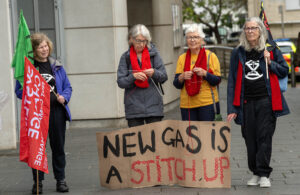Fair climate policy could help to reduce poverty
Ambitious climate policies could help to reduce extreme poverty in developing countries, according to a new study published in the journal Nature Communications.
In the study, researchers at the Potsdam Institute for Climate Impact Research looked at climate policies on a global scale and examined how global poverty will develop as a result.
It is predicted that if the current socio-economic development continues, then by 2030 about 350 million people will remain in extreme poverty. If ambitious climate policies consistent with the Paris Agreement targets are introduced, this number could increase by another 50 million people.
To compensate for this, the researchers have said that climate policies must include carbon emission pricing with progressive redistribution of the revenues.
This could be achieved via a ‘climate dividend’ where the revenues are returned equally to all citizens, which turns poorer households with typically lower emissions into net beneficiaries of the scheme.
The researchers have said that this redistribution could help to alleviate the negative side effects of climate policies on poverty and would even lead to a small reduction of global poverty by about 6 million people in 2030
Lead-author of the study, Bjoern Soergel, said: ‘Climate policies safeguard people from climate change impacts like extreme weather risks or crop failures. Yet they can also imply increased energy and food prices.
‘This could result in an additional burden especially for the global poor, who are already more vulnerable to climate impacts. Poverty reduction hence needs to be included in the design of climate policies.
‘To share the costs of climate change mitigation in a fair way, industrialized countries should compensate developing countries financially.
‘Combining the national redistribution of emission pricing revenues with international financial transfers could thus provide an important entry point towards a fair and just climate policy in developing countries. And it does not stop there: We need to look beyond 2030 and continue to work towards the goal of eradicating extreme poverty.’
Photo Credit – Pixabay















